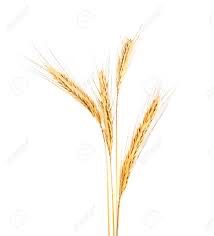

While rye is generally safe for dogs to eat, those with grain or gluten allergies should avoid it. Rye is a good source of antioxidants and nutrients that can help protect against infections and diseases.
Rye contains iron, manganese, magnesium, fiber, and B-complex vitamins, as well as polyphenols with antioxidant properties.
Dogs with grain allergies or food sensitivities may experience allergic reactions when consuming rye. Additionally, dogs that are gluten intolerant should avoid rye.
Rye should always be cooked before serving to your dog. It’s important to offer rye in moderation and as an occasional treat, rather than as a significant portion of your dog’s diet. Since rye is a carbohydrate, the majority of your dog’s diet should consist of quality meat-based protein.
Rye is a grain that is generally safe for dogs to eat, although those with allergies to grains or gluten should not consume it. Commonly known as a material for making bread, rye is also used as an ingredient in dog food. Rye is high in iron, manganese, magnesium, fiber, and B-complex vitamins. It also contains polyphenols which have antioxidant properties that can help protect against infections and diseases. However, dogs with grain allergies or food sensitivities may experience allergic reactions when consuming rye.
Dogs that are gluten intolerant should also avoid rye. It is important to offer rye in moderation as an occasional treat and not as a significant part of your dog's diet. Serving ideas would solely depend on if it's part of a particular dog food and if it's edible by dogs; consulting your veterinarian before feeding your dog anything is always the best choice. If your dog is allergic, two alternative sources of carbohydrates are sweet potatoes and brown rice. Have you ever given your dog rye before? What was their experience like? Remember always to consult a veterinarian before offering new food to your pets.